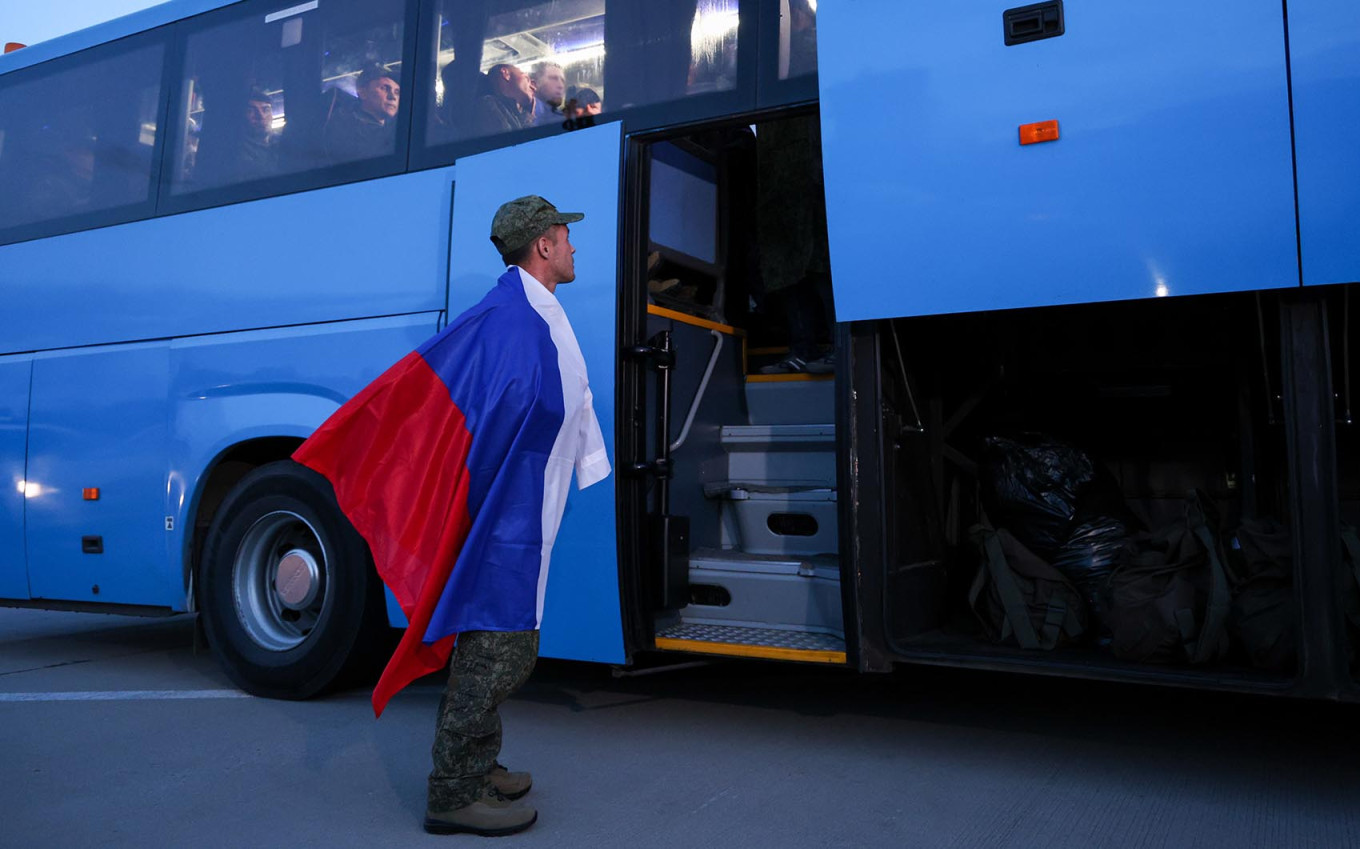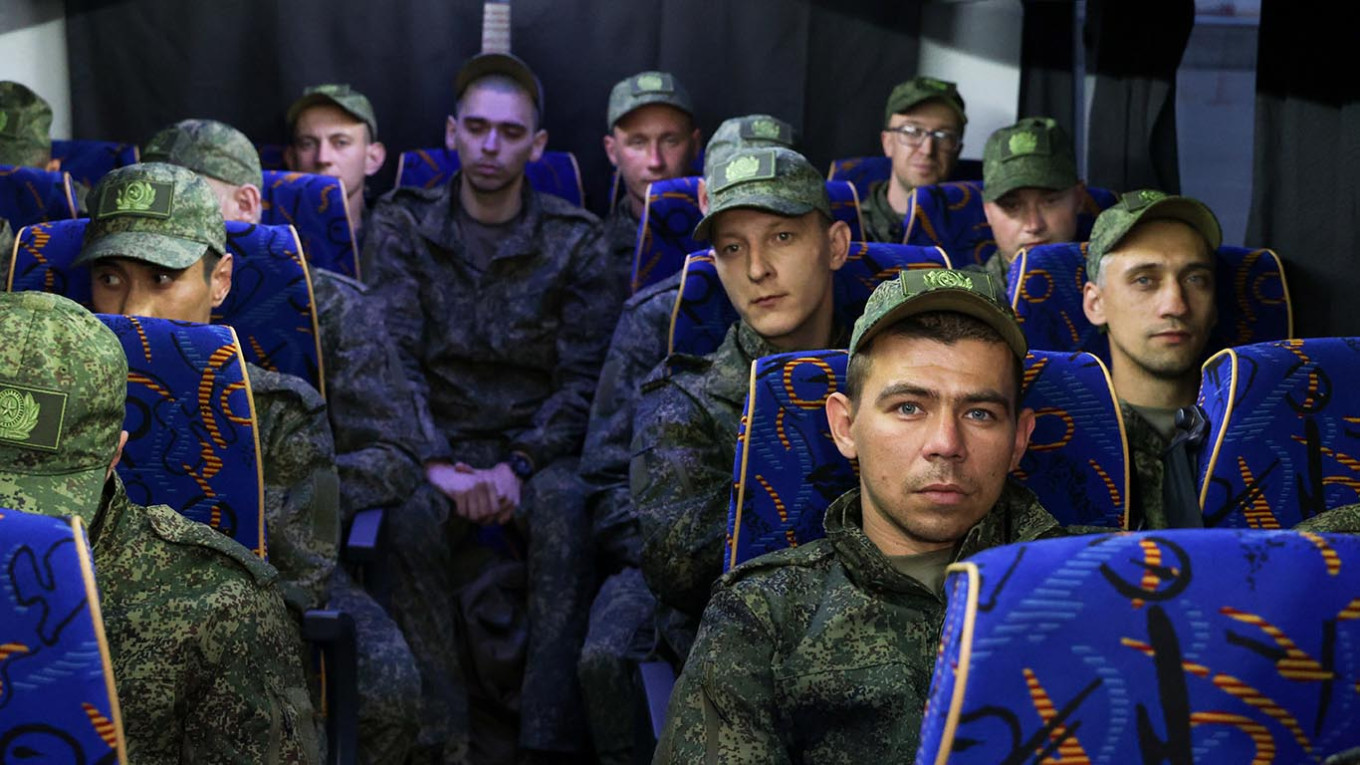Russian soldier Mikhail Surikov signed a contract with the Russian military “out of foolishness.” In a video filmed while he was held captive as a prisoner of war in Ukraine in November 2023, he said he had enlisted because he “needed money.”
“They sent us here to die,” Surikov, a former locksmith for an oil company, said of the Russian army. It was not possible to determine whether his comments were made under duress.
When asked a year later about what would happen to him if he were freed in a prisoner exchange, Surikov said his Russian commanders would send him back to the battlefield.
Surikov, 49, appears to have been exchanged in a prisoner swap between Russia and Ukraine last year. He was later killed at the front.
Moscow and Kyiv have intensified prisoner exchanges since the two sides held peace talks in Istanbul in May and June, where they agreed to swap more than 1,000 wounded or ill service members as well as soldiers under the age of 25. This month, the two sides held their eighth round of prisoner exchanges.
These swaps came amid reports that Moscow is sending former prisoners of war exchanged by Kyiv back into combat — a move that violates the Geneva Convention on POWs, which states that former prisoners cannot be employed on active military service.
As in the case of Surikov, some families have published video appeals asking Russian authorities not to send their formerly captive relatives back to the front after an exchange.
“I want to address Russian President Vladimir Vladimirovich Putin…with a request not to send former POWs back to the war zone,” said Marina Frolova, whose husband, Alexei Frolov, has been held as a POW in Ukraine for more than a year.
“Our boys and we, their families, have gone through so much during this time. Enough. Return them home after the exchange, not to the war,” Frolova said in a video that circulated online last month.

Similar cases have been reported before.
A family from Russia’s Far East Zabaikalsky region told journalists that their relative was sent back into military service right after a prisoner exchange.
Kirill Putinsev, 23, who was recruited to fight in 2024 while serving a prison sentence for theft, returned to Russia after a swap in May 2025 — but he “wasn’t even allowed to go home for a single day” and was “denied even a referral to a military medical commission,” his sister Yana claimed.
After suffering a nervous breakdown, Putinsev was sent to a psychiatric hospital in Russian-occupied Donetsk, his sister said.
In the Pskov region, Vasily Grigoryev, 32, and Dmitry Davydov, 45, were drafted into the 1009th Motorized Rifle Regiment following Russia’s September 2022 mobilization. They were later sent to fight in Ukraine, where they spent over six months in Ukrainian captivity.
After being released in a 195-for-195 prisoner swap, Russian commanders redeployed them to the Kharkiv front where they were tasked with evacuating the wounded and the dead. The two men eventually escaped from their military base and hitchhiked to Moscow, where they sought legal assistance.
According to lawyer Maxim Grebenyuk, who represented Grigoryev and Davydov, the Russian Defense Ministry argued that the servicemen did not fall into the specific categories of prisoners of war subject to direct repatriation.
These categories, according to the Geneva Convention, are the terminally wounded or ill and individuals whose physical or mental capacities have been severely diminished.
Yet Article 117 of the Geneva Convention on the Treatment of Prisoners of War says “no repatriated person may be employed on active military service.”
It is impossible to estimate how many former Russian prisoners of war have been sent back to the front by order of Moscow, as official lists of those who have been exchanged and those currently serving in the Russian army are not publicly available.
Last year, Ukrainian President Volodymyr Zelensky signed a law that exempts former prisoners of war from mobilization.
According to the group Idite Lesom (“Get Lost”), which helps Russians avoid participation in the war, “several dozen” former POWs who were forced back to the front after being exchanged contacted the organization last year asking for help.
Sergei Krivenko, director of the Citizen. Army. Rights group, told The Moscow Times that his organization has also received complaints from relatives of POWs who were sent back to the front after being exchanged, as Russian authorities continue to treat them as active-duty soldiers.
The Moscow Times requested comments from Russia’s Defense Ministry and human rights commissioner Tatiana Moskalkova, who handles POW cases and has said that “every search request goes through me personally.”
The Moscow Times also asked Ukraine’s Coordination Headquarters for the Treatment of Prisoners of War for comment.
None had responded to these requests by the time of publication.
A Message from The Moscow Times:
Dear readers,
We are facing unprecedented challenges. Russia's Prosecutor General's Office has designated The Moscow Times as an "undesirable" organization, criminalizing our work and putting our staff at risk of prosecution. This follows our earlier unjust labeling as a "foreign agent."
These actions are direct attempts to silence independent journalism in Russia. The authorities claim our work "discredits the decisions of the Russian leadership." We see things differently: we strive to provide accurate, unbiased reporting on Russia.
We, the journalists of The Moscow Times, refuse to be silenced. But to continue our work, we need your help.
Your support, no matter how small, makes a world of difference. If you can, please support us monthly starting from just $2. It's quick to set up, and every contribution makes a significant impact.
By supporting The Moscow Times, you're defending open, independent journalism in the face of repression. Thank you for standing with us.
Remind me later.







